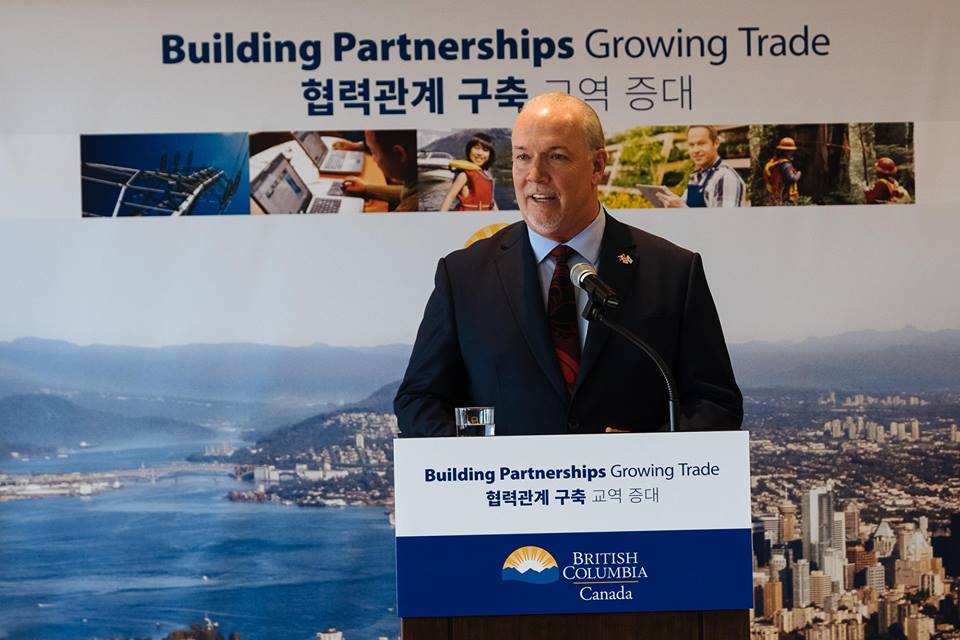
VICTORIA — A heckler interrupted Premier John Horgan’s news conference on protecting British Columbia’s wild salmon by shouting the province is allowing the aquaculture industry to continue operating while fish stocks are struggling to survive.
“You sold us out,” she yelled Friday. “Our salmon are dying.”
“If that’s your view you’re welcome to put your name on a ballot any time soon,” Horgan responded.
The woman, who identified herself as Tsastilqualus, said she is from the Alert Bay area off northern Vancouver Island but has been living in a tent on Swanson Island near several commercial salmon farms.
She said she has also protested outside Horgan’s constituency office and his home in Langford, just west of Victoria.
Tsastilqualus said salmon farms should be removed from ocean waters and operated on land in containment facilities.
“I want them out of our waters completely,” she said. “We don’t have time to waste. Our salmon is the most important thing to us as Indigenous people. It’s our culture. It’s in our songs, our dances, everything. If there is no salmon, what are we?”
Horgan, who announced the formation of a 14-member advisory council to develop plans to restore and protect B.C.’s wild salmon stocks, rejected Tsastilqualus statements that his government was stalling on protecting wild salmon.
“It’s a tragedy that we find ourselves in 2018 on the crest of perhaps losing this important species,” he said.
Horgan said the council will submit its recommendations to the government this fall. He said bureaucrats recently travelled to Ottawa to consult with federal officials in advance of proposed amendments this year to the federal Fisheries Act, which governs Canada’s oceans and fish.
Brian Riddell, a salmon expert who spent 30 years at the Department of Fisheries and Oceans and is the current Pacific Salmon Foundation chief executive officer, said Horgan’s appointment of a wild salmon advisory council is the start of a necessary journey to save the species.
“It’s not a simple thing to solve,” he said. “It will take time. It takes a lot of collaboration.”
Riddell said he expected the future of open-net aquaculture to be one of the major areas the council will examine, especially since some scientific studies are finding links between viruses that impact farmed salmon present risks to wild salmon.
“If there is the connection that these viruses that we’re finding can affect Pacific salmon then it makes the argument that there’s a risk to Pacific salmon from open-net pens much stronger,” he said.
Horgan said the government will soon have further comment on the future of salmon farm tenures that are due to expire June 20 for many of the aquaculture operations located on the north side of Vancouver Island.
The Green party’s Adam Olsen, who was appointed to the council, said bold leadership is needed to tackle the threats facing salmon populations.
“We cannot continue to manage salmon runs to zero,” he said. “We are facing a crisis.”